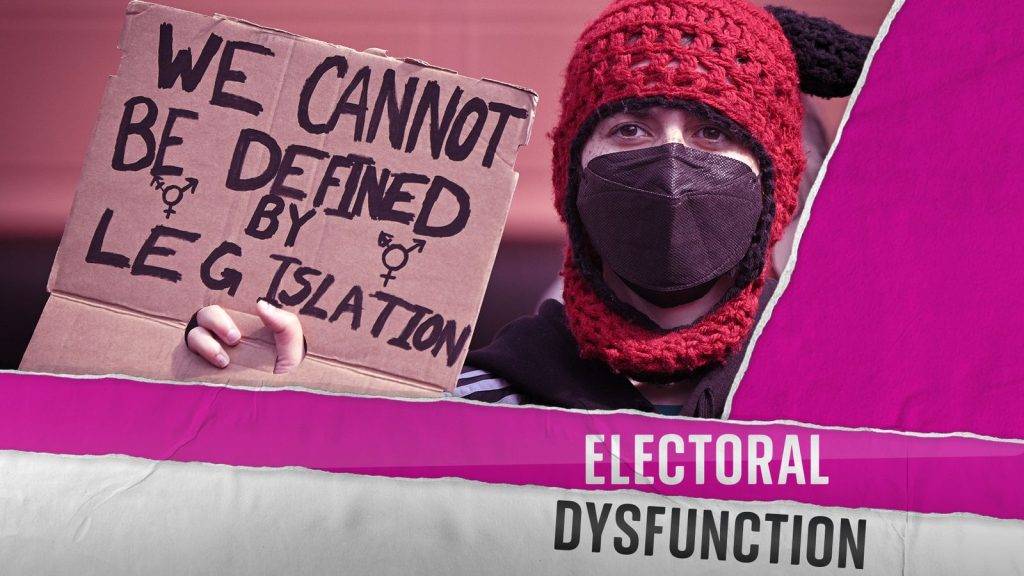Cliff Notes
-
The Supreme Court ruling clarifies that “woman” and “sex” under the Equality Act 2010 refer to biological definitions, allowing some single-sex services to exclude trans women.
-
Harriet Harman emphasises the need to rebuild consensus, stating the importance of balancing the safety of women who may feel uncomfortable with trans women in certain spaces.
- Trans rights advocates express concern over the ruling’s implications, arguing it may exacerbate discrimination and jeopardise the safety and dignity of trans individuals.
‘Consensus has got to be rebuilt’: Harriet Harman reacts to gender ruling on Electoral Dysfunction podcast | Politics News
The Supreme Court ruling on the definition of a woman has “clarified” the 2010 Equality Act, Harriet Harman has said – as she urged people to feel “confident they can use their common sense”.
The Labour peer and former minister put forward the Equality Bill, now the Equality Act 2010, which protects people from discrimination in the workplace and in wider society.
The legislation had become the centre of controversy in the debate about transgender rights as it was not clear whether the term “sex” referred to biological sex or “certificated” sex as legally defined by the 2004 Gender Recognition Act (GRA).
Last week, the Supreme Court unanimously ruled that the definition of a “woman” and “sex” in the Equality Act 2010 refers to “a biological woman and biological sex”.
It means that some single-sex service providers will be able to exclude trans women if they deem it proportionate and necessary.
But speaking to Beth Rigby on Sky News’ Electoral Dysfunction podcast, Baroness Harman said the providers of single-sex spaces were always able to do this under the Act.
She said: “What we’ve got to do now, is with the Supreme Court having clarified what we said all along in the 2010 act, that consensus has got to be rebuilt.
“I strongly believe that most people don’t like to see trans people discriminated against and persecuted, and they want to just live and let live and let people get on and live the best lives they can.
“And most people understand that if you’re dealing with women who’ve been traumatised by male violence, it might be that actually a trans woman there prevents them feeling they can be comfortable in a refuge or in a counselling session.”
During the podcast, Baroness Harman, Beth Rigby and Baroness Davidson were played audio sent in from Ellie, a 25-year-old trans woman from Glasgow.
She said she was “devastated” by last week’s ruling.
“I’m scared and I am angry,” she said.
“I don’t think there’s clarity yet as to what this ruling actually means for my community in law.
“The GRA has now been rendered practically meaningless, and the UK government could respond by saying ‘yep, fair enough, let’s get them updated so that we can make sure that trans people are respected and protected in society for who they are’, but instead, they’ve pounced on us – with government ministers even suggesting that trans women can’t use women’s spaces like toilets.
“I mean, where am I supposed to go?
“It’s clearly not safe for so many trans women like me to use the men’s toilets, not to mention completely dehumanising.
“It’s not appropriate for a male police officer to get to pat down my chest, and it’s also clearly completely unworkable.”
She added: “This whole thing is being done under the guise of making some women feel safer, while actually making so many of us, whether trans or not, materially less safe, and I don’t even think we’d be having this conversation if the media and some politicians hadn’t spent the past five years demonising us.
“It just feels so, so cowardly and cruel.”


